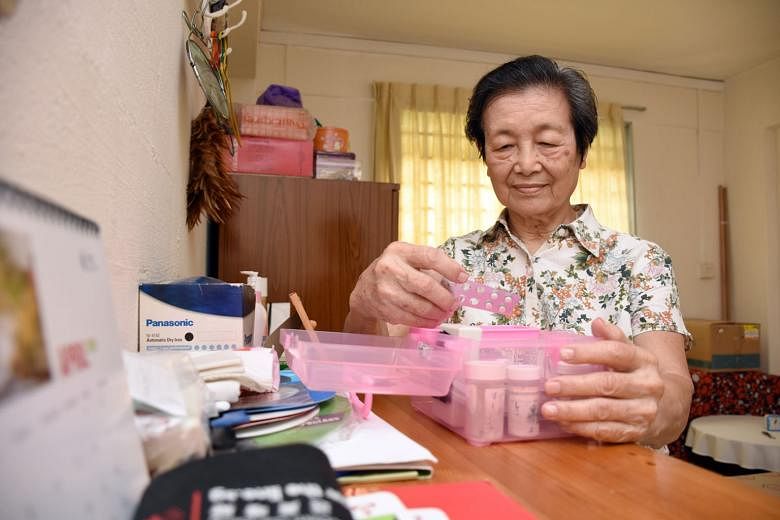It is not easy for those who care for the elderly - especially those who live alone - to keep track of whether these senior citizens take their medication regularly or whether they have suffered a fall at home.
To help them, researchers at the Agency for Science, Technology and Research (A*Star) and the Singapore Management University (SMU) have developed a monitoring system that tracks the home-alone senior's movements and behavioural patterns.
The project, called ShineSeniors, comprises a system of infra-red sensors installed on the walls of each room and the front door of the senior's home.
The system tells remote caregivers if the senior is moving around, said Dr Liang Huiguang from A*Star's Institute of High Performance Computing, who co-leads the research.
With time, it can also trace a pattern in their movements and, if this pattern changes - suggesting a health problem - it can alert care providers via a mobile app.

The team also developed a medicine box with a sensor attached to the cover, which sends a signal to caregivers when it is opened.
This can be used to track when the senior takes his medicine.
Lapses in medication compliance are one of the main reasons for repeated hospital admissions, said Associate Professor Tan Hwee Pink from SMU, the other project co-leader.
The system and the medicine box are being trialled in 50 homes, mostly two-room flats. The team intends to test it out in 50 more homes by October next year, when the project ends.
The project is funded by the Ministry of National Development and National Research Foundation.
Dr Eugene Shum from Eastern Health Alliance, a collaborator in the project, said the system allows volunteers and healthcare professionals to respond early to the needs of the people they care for.
Dr Shum added that remote sensing technologies like this also allow people to age in their own homes while being watched over.3
Correction Note: An earlier version of this story misspelled Dr Eugene Shum's name. It has now been corrected.

